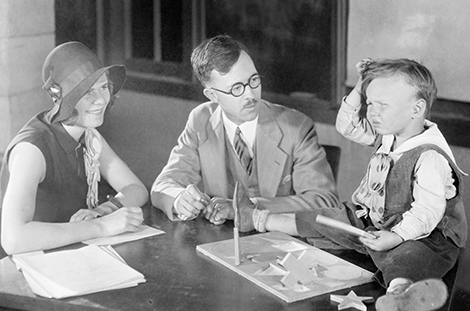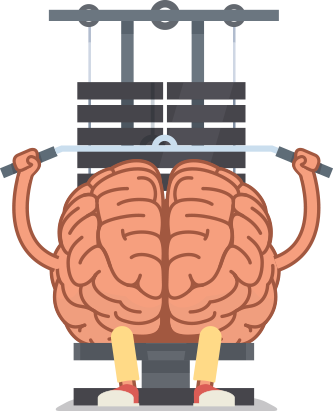What is IQ

Introduced by William Stern in 1912, the term IQ stood for intelligence quotient. The author used it to evaluate intelligence level test results. Since then, lots of methodologies for IQ evaluation have appeared, lots of dedicated studies have been carried out, and big data people’s IQs have been collected.
Numerous theories exist within studies devoted to human intelligence. Raymond Cattell identified two intelligence types: flexible and “crystalized”. Meanwhile, Charles Spearman and Robert Sternberg identified 4 types, and Joe Guilford discerned 3 axes that can give up to 120 combinations of thinking patterns.
Having systematized these theories, three sides of intelligence can be recognized.:
- Verbal
- Creative
- Practical
By virtue of special methodologies, emotional and social intelligence should also be considered.
Normally, lots of companies exploit IQ testing in hiring or as a clinical diagnostics indicator; in academic field it is related to age, gender, quality of life, income, genetic factors, feeling of happiness, and to virtually any factor valuable for the science of psychology. There is a dedicated area of research studying average IQ for different countries.
So, what do this abbreviation and its value stand for?

The very first intelligence test appeared in 1905. Alfred Binet and Théodore Simon developed a test for school children that then became a pioneer among intelligence-measuring methodologies, followed by lots of tests and human intelligence models.
Today’s most popular IQ tests are developments of Hans Eysenck, David Wechsler, John Raven, and Rudolf Amthauer. Despite the variety of tests, there is no standard stipulating a unified result determination method. Thus, the average IQ will be 90-109 points in Wechsler’s test, and 100-120 points in Eysenck’s.
A special table shows the relation between Wechsler’s IQ value and grades:
| 125 | Doctors of Science | A person with average IQ is likely to have mediocre grades at school. But this person still can reach much, provided that they will work hard and make enough efforts. |
| 114 | Graduates | |
| 105-110 | Undergraduates | |
| 100-105 | Office clerks and salespeople | |
| 100 | School-leavers, qualified workers (for example, electric engineers) |
Some of Nobel Prize Winners have average IQs. The gender has no impact on IQ, but there is a clear relation between intelligence and criminal propensity.
It is interesting that in 2006, a rating of countries with highest IQs was formed. |
| 95 | Seniors that have not finished school | |
| 90-95 | Middle-level workers (tractor operators, plant workers) | |
| 90 | Secondary school leavers | |
| 80-85 | People that have not finished secondary school | |
| 75 | Having 50% chance to get to the senior school |
Complete the test and discover your child’s IQ

IQClub team has developed a short logic and savvy test for children. Complete it with your child to learn what they are capable of.
Start TestIQClub team has developed a short IQ test including only 60 questions. Complete it with your child to learn their IQ. Totally free.
Complete IQ TestA person with average IQ is likely to have mediocre grades at school. But this person still can reach much, provided that they will work hard and make enough efforts. Some of Nobel Prize Winners have average IQs. The gender has no impact on IQ, but there is a clear relation between intelligence and criminal propensity.
Intelligence is the factor that determine the fate. People with higher IQs are more likely to enter a prestige university, find a well-paid job, and then get promoted. Also, divorces are rarer among high-intelligence people. People with above-average IQs showed good learning capacities and mastered auxiliary professions well.
For quite a long time there was a version that in the course of life intellect reaches its maximum at the beginning of middle age, and then there is an inevitable decline in its performance. But research in recent years shows that the IQ level remains unchanged and can be increased through enhanced mental work. The greatest contribution to the development of IQ is made by working memory, IQClub training system will help you to develop and strengthen the working memory, keeping and increasing the IQ values. Research has shown that intellectual abilities and productivity are linearly dependent, and high IQ values lead to higher productivity.
